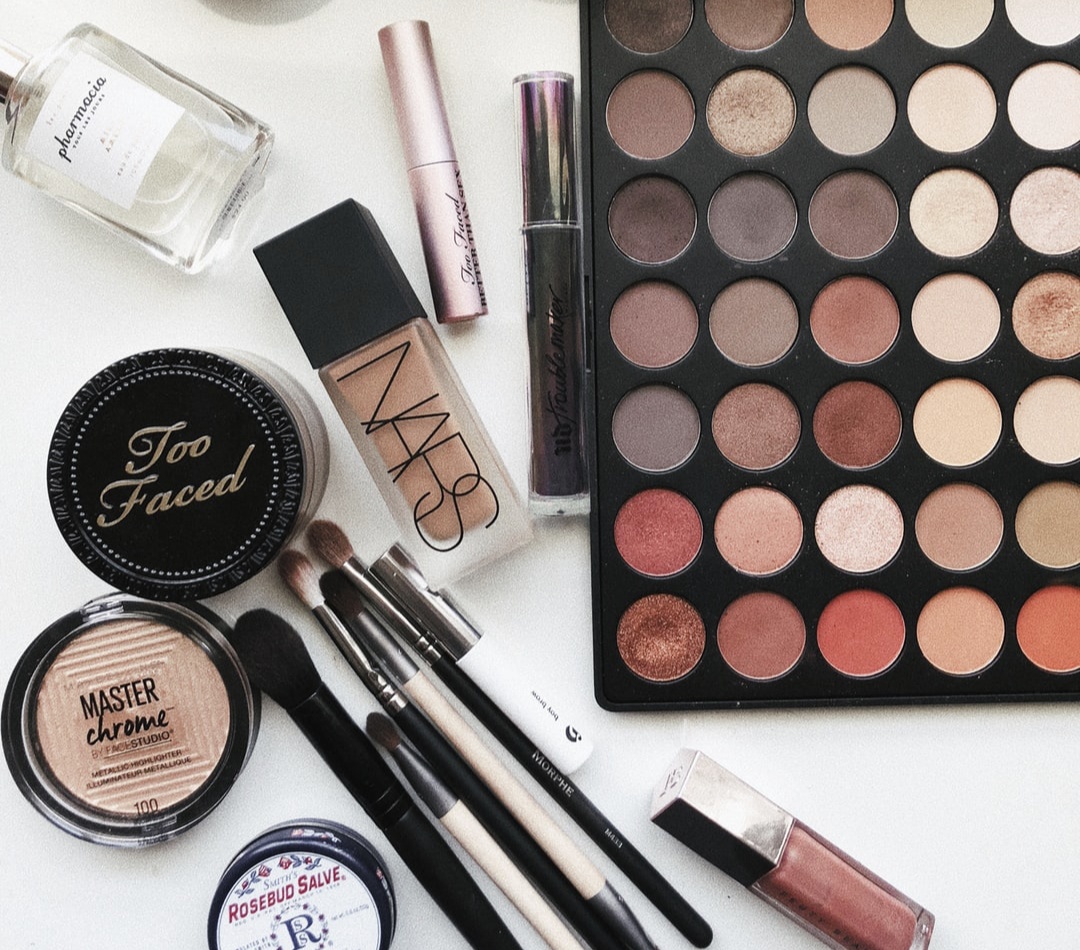Cosmetics can irritate the skin, causing effects such as redness and inflammation. If this happens very frequently, it can damage the skin. All cosmetics, even hypoallergens, can cause adverse effects.
The figures indicate that only two decades ago, 15% of contact dermatitis was caused by cosmetics.Today that figure has doubled. This means that cosmetics can irritate the skin and that the widespread use has increased this problem.
It is estimated that the cosmetic industry employs around 8,000 elements in the elaboration of its products. With such a volume, it is clear that one or more of these cosmetic components can irritate the skin, but it is not easy to detect which of them affects a particular person.
Cosmetics can irritate the skin or cause an allergic reaction. These are two different processes. The irritation manifests as redness and inflammation, mainly.In the allergic reaction, however, there is pruritus, itching, burning and many times blisters form.
Can cosmetics irritate the skin?
It is clear that cosmetics can irritate the skin. Remember that the skin is the largest organ in the body and that it is also a way of penetration for many chemical agents. In technical terms, the adverse reaction to some element or component is called contact dermatitis . This can be irritative or allergic.
There is no one hundred percent safe cosmetic. All cosmetics can irritate the skin to a greater or lesser extent. These may include daily soaps and shaving foams for men, not just makeup.
Also, no one is exempt from suffering a contact dermatitis by the use of cosmetics. Obviously, people with atopic skin are more prone to this happening . So are those who have a history of rhinitis or allergic conjunctivitis.
Irritating components
In general terms, perfumes and preservatives are the elements responsible for the majority of skin irritations and allergies. In particular, it has been established that the following cosmetic compounds can irritate the skin more frequently:
- Ammonia . It is present mainly in hair dyes and in products that are used to make permanent. Produces irritation or allergic reaction.
- Sulfate . It is a component of many shampoos, in the form of sodium lauryl sulfate and sodium laureth sulfate. It is important to check the label of the shampoo when it feels dry or itchy on the scalp, after using the product.
- Eye shadow dyes . Its effect is manifested as redness, inflammation of the eyes, and even tearing.
- Retinol . It is the star component of many anti aging creams . Some people cause irritation and dryness.
- Salicylic acid . It is found mainly in anti-stain creams. In some cases it not only increases the spots, but also causes additional irritation.
- Glycolic acid . Sometimes it causes redness, dryness or burning. It is mostly in exfoliating products. In those cases, it is better to use products with lactic acid.
- Fragrances . They are associated with skin irritation on multiple occasions.
- Aluminum and toluene Deodorants containing aluminum have been frequently associated with skin irritation. The same goes for nail polishes that contain toluene, formaldehyde or DBP.
- Other . These components have significant potential for irritation or allergy: the euxyl K-400 , the kathon and the balsam of Peru, in compact powders; the propyl gallate, the octyl gallate and mercury, in the lipsticks; nickel sulfate, in eyelash masks and eyeliner; and the thiomersal in the eyeshadows.
Data to take into account
Cosmetic often causes irritative or allergic reaction, but n or can be ruled out that there is some previous problems may be the cause of that reaction . When irritation is very frequent, or it is very intense, it is always necessary to consult the dermatologist.
Typically, irritation appears shortly after using the product. Therefore, it is very important to be attentive to identify the cause of the problem. Sometimes it is enough to simply avoid the product that gives rise to the reaction and everything is solved.
Cosmetics can also irritate the skin if not used properly. These have an expiration date, after which they can not only cause small adverse reactions , but an infection. These types of products should be stored in dry and cool places, otherwise they change their composition.
It is also necessary to keep all makeup elements clean. Brushes, brushes, applicators, etc., should be washed frequently. Such items are for personal use only and it is not appropriate to share them.
